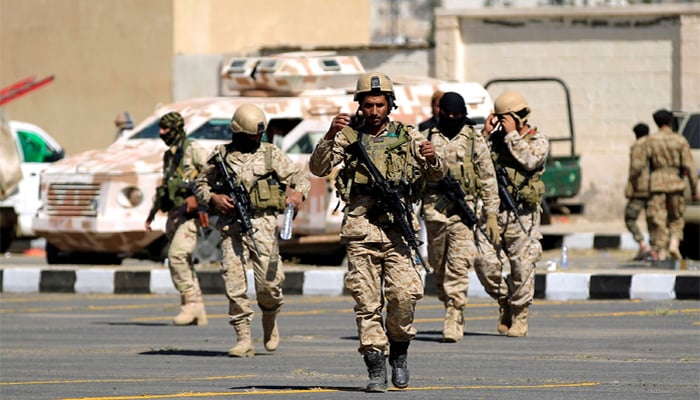Saudi-led alliance pushes for an end to escalation in south Yemen
April 27, 2020

RIYADH: The Saudi-led coalition in Yemen on Monday asked a leading separatist faction that declared self-rule in the south to retreat, saying that all the parties need to unite against the coronavirus.
The move by the separatist Southern Transitional Council (STC) threatens to renew conflict between the STC and the Saudi-backed government, nominal allies under the coalition, even as the United Nations tries to secure a permanent nationwide ceasefire over the coronavirus pandemic.
UN Yemen envoy Martin Griffiths said he was concerned by the developments.
“Now, more than ever, all political actors must cooperate in good faith, refrain from taking escalatory actions, and put the interests of Yemenis first”, he said in a statement.
Yemen’s internationally recognised government warned of “catastrophic consequences” after the STC on Sunday declared emergency rule in southern governorates including Aden, interim seat of the government that was ousted from power in the capital, Sanaa, by the Houthi group in late 2014.
“The Coalition urges an immediate end to any steps contrary to the Riyadh Agreement, and work rapidly toward its implementation,” the alliance said in a statement, referring to a power-sharing deal brokered by Saudi Arabia in November.
It voiced support for the Saudi-backed government and said implementation of the deal would form a “competent government” based in Aden to tackle the novel coronavirus, recent flooding and other economic and developmental challenges.
Yemen has been mired in violence that has killed more than 100,000 since the coalition intervened in March 2015 on Hadi’s side. There has been military stalemate for years and the Houthis hold most big urban centres.
SHATTERED HEALTH SYSTEM
The STC, which is backed by Riyadh’s main coalition partner the United Arab Emirates, has long sought self-rule in the south and accuses Abd-Rabbu Mansour Hadi’s government of mismanagement and corruption, a charge it denies.
The UAE, which shares the STC’s distrust of a party in Hadi’s government, reduced its presence in Yemen last year but maintains sway via southern fighters it backs.
The UAE is against the STC’s unilateral move, its minister of state for foreign affairs Anwar Gargash said on Monday, adding that “frustration” with the Riyadh agreement’s delay was no justification. The Riyadh agreement ended a previous stand-off between the separatists and the government last year.
The UAE has confidence in Saudi Arabia’s commitment to implement the agreement, Gargash said.
UN envoy Griffiths said the Riyadh Agreement enables STC participation in consultations on a political solution for the conflict, and urged its quick implementation.
The Saudi-led coalition has announced a unilateral truce prompted by a UN plea to focus on the coronavirus pandemic. The Houthis have not accepted it and violence has continued.
While Yemen has reported only one confirmed COVID-19 case, aid groups fear a catastrophe if it spreads among a malnourished population in a country with a shattered health system.
The United Nations is trying to convene virtual talks on the truce, coordinated coronavirus efforts and confidence-building steps to restart talks to end the war.
Adding to the world’s largest humanitarian crisis, severe flooding in recent weeks has contaminated water, damaged roads and disrupted access to basic services. About 100,000 people have been affected, and Aden has been hit especially harmed, with at least seven people losing their lives, the UN said.
“Truly, none of us know how much more suffering the people of Yemen can take,” said the UN Yemen aid chief Lise Grande.











